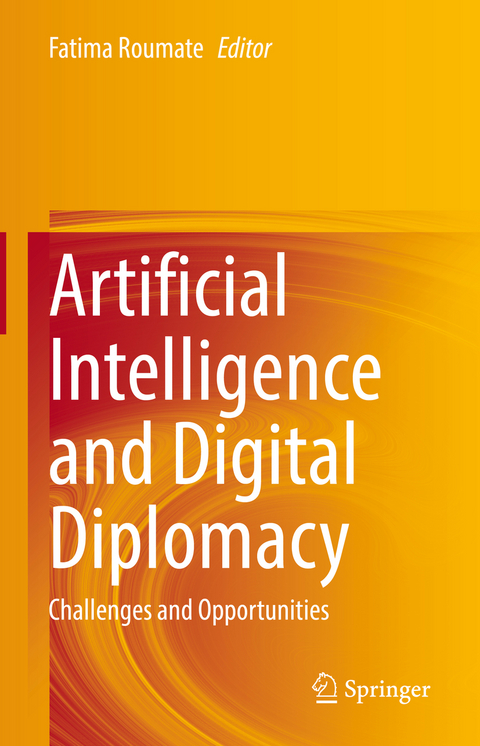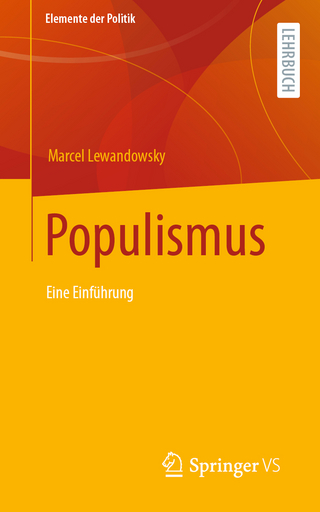
Artificial Intelligence and Digital Diplomacy
Springer International Publishing (Verlag)
978-3-030-68646-8 (ISBN)
Written by globally recognized experts, each chapter presents a case study covering an emerging topic such as: international regulation of the web and digital diplomacy, the interplay of artificial intelligence and cyber diplomacy, social media and artificial intelligence as tools for digital diplomacy, the malicious use of artificial intelligence, cyber security, and data sovereignty. Incorporating both theory and practice, quantitative and qualitativeanalysis, this volume will be of interest to graduate students and researchers in international relations, diplomacy, security studies, and artificial intelligence, as well as diplomats and policymakers looking to understand the implications of digitalization and artificial intelligence in their fields.
Fatima Roumate is an Associate Professor of International Economic Law at Mohammed V University, Agdal Rabat (Morocco) and President and Founder of the International Institute of Scientific Research (Morocco). Member of the Ad Hoc Expert Group for the Recommendation on the Ethics of Artificial Intelligence UNESCO, Morocco. Globally recognized Expert on Artifical Intelligence and international psychological security.
Introduction.- Chapter 1. Artificial Intelligence : to strengthen or to replace traditional diplomacy.- Chapter 2. Artificial Intelligence: A New Tool For Dimplomats.- Chapter 3. Data Sovereingty: New Challenges For Diplomacy.- Chapter 4. Cyber security new threats for diplomacy.- Chapter 5. "Always There": How Diplomats Deal with Visibility Injunction in the Digital Public Sphere.- Chapter 6. Digitalization Between Security And Order And Democracy And Liberalism.- Chapter 7. Digital Diplomacy And International Regulation of The Web.- Chapter 8. Malicious Use of Artificial Intelligence, New Challenges For Diplomacy And International Psychological Security.- Chapter 9. Artificial Intelligence - The New Tool For Cyber Diplomacy, The Case of The European Union. Chapter 10. European Digital Diplomacy Towards Russia: A Cross-Country Social Media Analysis.- Chapter 11. Foreign Birds on The Wire - Goals And Rhetorical Ethos in Embassies' And Ambassadors' Twitter Communication.- Chapter 12. The Potential And Limits of US Digital Diplomacy In The Middle East And North Africa.- Chapter 13. Twitter Diplomacy on CPEC: Impact on the triangular relationships between the Pak-China and the USA.- Chapter 14. Effective Digital Diplomacy? A Case Study of The British Embassy in Egypt.
| Erscheinungsdatum | 02.09.2021 |
|---|---|
| Zusatzinfo | XIV, 241 p. 30 illus. |
| Verlagsort | Cham |
| Sprache | englisch |
| Maße | 155 x 235 mm |
| Gewicht | 541 g |
| Themenwelt | Sozialwissenschaften ► Politik / Verwaltung ► Vergleichende Politikwissenschaften |
| Schlagworte | Artificial Intelligence • Cold War 2.0 • Cyber diplomacy • Digital Diplomacy • European Union • international psychological security • Internet Governance • New Technologies |
| ISBN-10 | 3-030-68646-9 / 3030686469 |
| ISBN-13 | 978-3-030-68646-8 / 9783030686468 |
| Zustand | Neuware |
| Haben Sie eine Frage zum Produkt? |
aus dem Bereich


